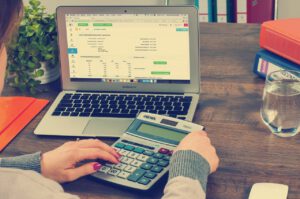
How Are Americans Preparing Their Finances for the Election? — Contributed article from The Ascent, a Motley Fool service
Q3 2020 hedge fund letters, conferences and more
Americans are taking steps to shore up their finances ahead of early November. Here’s how.
The results of the upcoming presidential election could have a significant impact on Americans’ finances. After all, our next president will face digging the economy out of its current recession while trying to get a dangerous pandemic under control.
There are other implications that will come into focus once a president is elected. Whoever gets the job could make significant changes that alter the way Americans spend and manage their money.
Take healthcare. A big subject of debate between President Trump and former Vice President Joe Biden is the Affordable Care Act, which has increased the number of Americans with health insurance. Access and costs could change, depending on who’s president. And that’s just a single example.
It’s not surprising, then, to learn that 43% of Americans are making specific changes ahead of the big election, according to a recent survey by The Ascent. Here are some of the moves they’re making.
Boosting savings
A good 26% of Americans say they’ll put more money into their savings accounts ahead of the election. That’s smart, because if the greater economic situation worsens, or if a new president imposes harsher restrictions in an attempt to curb the coronavirus outbreak, more jobs could be lost, and extra savings will help those impacted by layoffs. Though unemployment benefits are generally available to laid-off workers who are let go through no fault of their own, they typically replace just a portion of lost paychecks. Therefore, it’s important to have additional savings to fall back on in an uncertain time.
Cutting back on spending
Meanwhile, 25% of Americans plan to spend less in the near term — presumably to align with the above goal of boosting savings. With coronavirus cases surging right now, going out and socializing is less appealing, which offers some easy saving opportunities. Working remotely is another way some people may be reaping some savings.
Padding emergency funds
Some people distinguish between general savings and savings earmarked for emergencies. An estimated 22% of Americans are putting more money into their emergency funds, which could help buy them protection in the event of a layoff or an unplanned expense. For example, a sudden car repair could result in a world of debt without funds, so adding to emergency savings is always a good idea.
Paying off loans
Carrying less debt means having less to worry about with a job loss, so it makes sense that 15% of Americans want to pay off loans before a president is declared. Paying off high-interest credit card debt is especially helpful, as it can also be a source of credit score damage.
Changing investing strategies
For 10% of Americans, the election has prompted rethinking the way they invest their money. It’s a good idea for those with investment accounts to evaluate their portfolios and make sure they’re working with a balanced investment mix in case the stock market crashes and stays down post-election.
Refinancing mortgages
A good 6% of Americans plan to refinance their home loans ahead of the election. That said, presidents don’t dictate mortgage rates, and to an extent, they don’t influence them all that heavily. The rush to refinance mortgages could stem from the current competitive rates, and homeowners wanting to get in on good deals while they last.
Buying or selling a home
An estimated 4% of Americans plan to buy or sell a home in the near term, but sellers may have the upper hand in this regard. Housing inventory has been tight this year, which has caused an uptick in buyer demand. Home values have soared and sellers have made a killing in the residential real estate market, while buyers have been left to grapple with inflated prices and limited selection.
A new president won’t necessarily influence the housing market immediately. But a president who more quickly gets the pandemic under control could lead to a more open market following the election.
How should you prepare your finances for the election?
There are a number of financial moves you might make before the November election, so your best bet is to take a look at your finances and see what areas need tweaks or improvements. Your emergency fund, for example, should have enough to cover a minimum of three months of living expenses, and ideally, more like six months’ worth. If you’re shy of that goal, it pays to sock more money away immediately.
Paying off costly debt is also a smart move — not just because of the election, but because it can save you money. Similarly, should do a portfolio rebalance regularly, so it’s not a bad idea to give your investments a checkup.
Of course, the candidate who’s ultimately elected president will surely influence personal finances in more ways than one, so if you’re concerned about the impact to your financial situation, take the time to read up on where each candidate stands on relevant issues before casting your vote. That way, you’ll be better positioned to make an informed decision in such an important election.
The post How Are Americans Preparing Their Finances for the Election? appeared first on ValueWalk.
